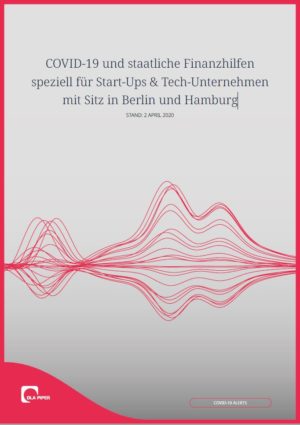In a landmark preliminary injunction of 2 August 2018 (docket no. 15 U 21/18), the Düsseldorf Higher Regional Court ruled that, under the circumstances of the individual case, a medical cannabis product may, due to the way it is objectively presented, trigger the marketing authorization requirement for so-called “finished medicinal products” (“Fertigarzneimittel”). This may particularly be the case if the product, in its specific form, can objectively be used as a finished medicinal product, even though it is only intended as a component for the manufacture of magistral medicinal preparations (“Rezepturarzneimittel“) in pharmacies. As a consequence, the placing of such a cannabis product on the German market may be prohibited as an unfair competition practice in case there is no marketing authorization for the specific product in place.
This decision has been quite unique so far and of particular relevance for the rapidly growing medical cannabis market in Germany since it implies that cannabis products intended only as components for the manufacture of magistral medicinal preparations, e. g. cannabis extracts, may nevertheless have to go through the entire marketing approval process and, hence, extensive clinical trials like any other finished medicinal product prior to placing them on the German market if they are objectively presented as a finished medicinal product.
Deutsche Zusammenfassung:
Das OLG Düsseldorf hat in einer wegweisenden einstweiligen Verfügung am 2. August 2018 (Az. 15 U 21/18) entschieden, dass ein medizinisches Cannabisprodukt im Einzelfall aufgrund seiner objektiven Aufmachung die Zulassungspflicht für sogenannte “Fertigarzneimittel” auslösen kann. Dies kann insbesondere dann der Fall sein, wenn das Produkt in der konkreten Gestalt objektiv als Fertigarzneimittel verwendet werden kann, obwohl es nur als Bestandteil für die Herstellung eines sogenannten “Rezepturarzneimittels” in Apotheken bestimmt ist. Das Inverkehrbringen eines solchen Cannabisprodukts in Deutschland kann als unlautere Wettbewerbshandlung untersagt werden, wenn es arzneimittelrechtlich nicht zugelassen ist.
Diese Entscheidung ist bislang einzigartig und für den rasant wachsenden Markt für medizinisches Cannabis in Deutschland von erheblicher Bedeutung, da sie impliziert, dass Cannabisprodukte, die nur als Komponenten für Rezepturarzneimittel bestimmt sind, wie z.B. Cannabisextrakte, dennoch aufgrund ihrer objektiven Aufmachung als Fertigarzneimittel das gesamte Zulassungsverfahren und damit insbesondere umfangreiche klinische Studien durchlaufen müssen, bevor diese in Deutschland in den Verkehr gebracht werden dürfen.






